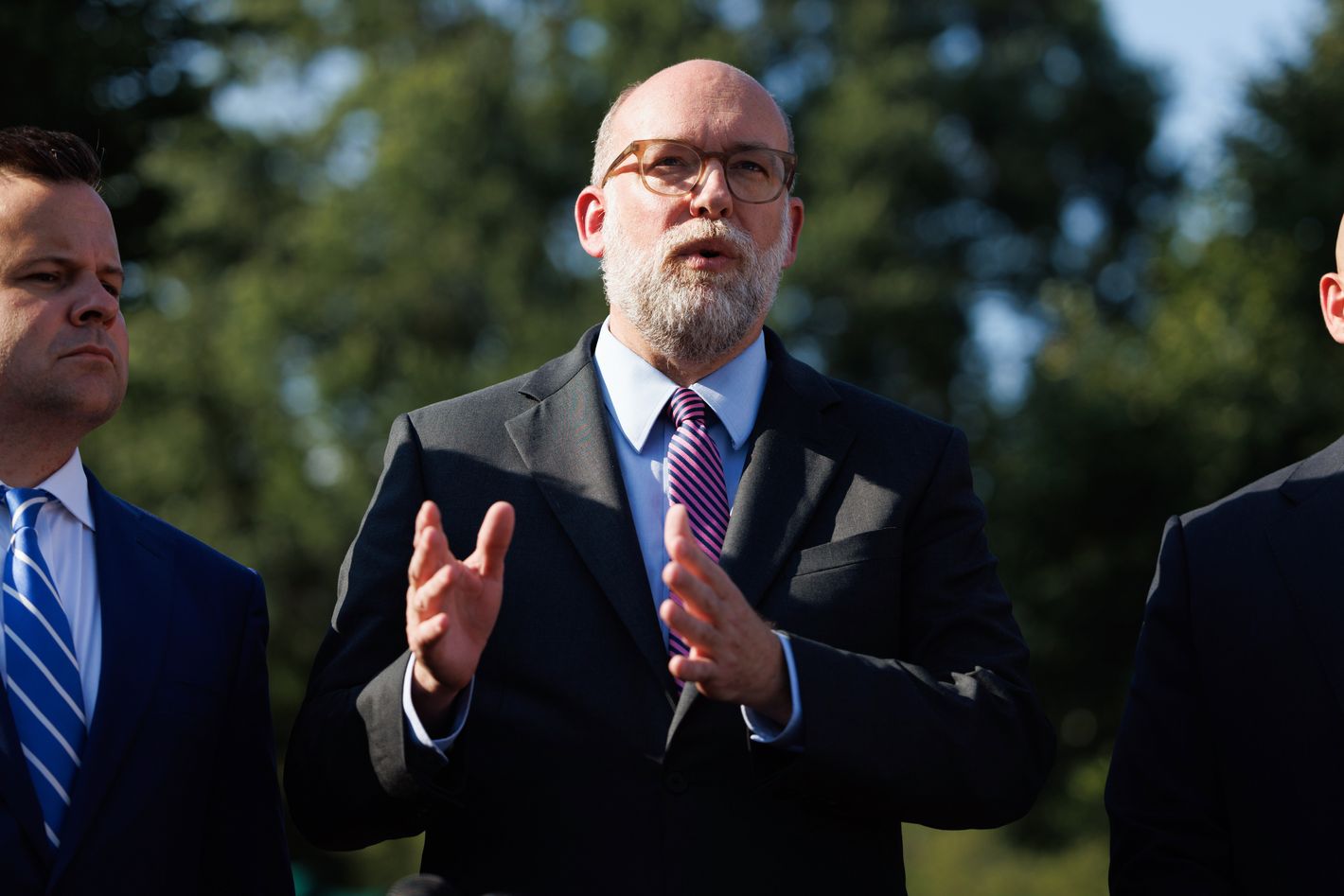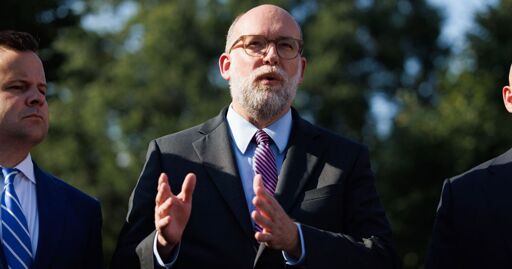 Photo: Aaron Schwartz/Bloomberg/Getty Images
Photo: Aaron Schwartz/Bloomberg/Getty Images
One of the reasons congressional Democrats are unwilling to accept a “clean” stopgap spending bill that would avert a government shutdown until November 21 is the pattern of lawless power grabs by the Trump administration, and particularly by OMB director and Project 2025 co-architect Russell Vought. Indeed, the Democratic counterproposal to the GOP’s “clean” continuing resolution includes a demand that spending clawbacks by Vought be reversed and forsworn. But as the two parties drift toward a government shutdown in five days, with no negotiations in sight, Vought has now thumbed his nose at the Democrats, all precedents, and congressional authority over the federal government by announcing that agencies disfavored by the administration will have massive “reductions in force” if funding runs out on September 30. These RIFs would have the effect of turning the temporary furloughs of “nonessential” federal employees that typically accompany a shutdown into permanent layoffs, with the precise targets and levels of firings dependent on OMB’s judgment about what’s necessary to promote the “president’s priorities.”
This legally shaky directive builds on earlier OMB instructions to federal agencies to prepare RIF plans to terminate as many as 30 percent of their employees, and in some cases, on DOGE assessments of unnecessary programs and personnel. For the most part, the RIFs haven’t materialized, and in some cases, agencies have even hired back employees chased off by the kiddie software warriors of DOGE, which has itself largely given way to Trump-appointed agency heads and OMB. These zombie slash-and-burn efforts are now roaring back to life.
The RIFs would only apply to programs that are funded through annual appropriations, so they would exclude “mandatory” entitlement programs like Social Security and Medicare. OMB has also indicated politically sensitive programs like veterans benefits and Trump pet issues like ICE and border control will be exempt. There are a lot of questions left unclear by Vought’s big move, reflecting his characteristic strategy of using fear and uncertainty to keep the federal workforce under his thumb. And there is nothing much murkier than the law governing RIFs, particularly during a government shutdown.
Whatever its actual effects, it’s clear the administration’s mass-layoff threats are intended to ratchet up the pressure on Democrats to change their position and vote to keep the government open. What Vought is signaling is that he will take exactly those destructive steps Chuck Schumer feared he might take had a shutdown occurred in March, a major factor in the Democratic Senate leader’s controversial decision to abandon the filibuster against the last stopgap spending bill. The key issue isn’t just which side gets blamed for a shutdown, but how bad a shutdown would be for programs and constituencies important to Democrats.
Having said all that, the immediate Democratic reaction to Vought’s announcement has been fist-shaking defiance, as the Hill reported:
“Donald Trump has been firing federal workers since day one — not to govern, but to scare. This is nothing new and has nothing to do with funding the government. These unnecessary firings will either be overturned in court or the administration will end up hiring the workers back, just like they did as recently as today,” Schumer said in a statement late Wednesday.
House Democratic Leader Hakeem Jeffries was blunter:
“Listen, Russ, you are a malignant political hack,” Jeffries said. “We will not be intimidated by your threat to engage in mass firings.
“Get lost.”
Jeffries, of course, has nothing beyond an advisory role in the Senate Democrats’ decision to filibuster the CR or surrender again. The latter decision would undoubtedly enrage Democratic activists and divide the party at a moment when it needs unity more than ever. The idea of giving a victory to Vought and a gloating Donald Trump is for the moment more painful than the shutdown with long-term consequences that may be just over the horizon. A variable yet to be measured is whether congressional Republicans chafe at the mass layoffs and encourage a deal that cancels them. So far this year, their willingness to buck the White House and its agents has been as small as the hope that a government shutdown can be avoided altogether.
More on Politics
What We Know About the Dallas ICE-Facility ShootingMike Johnson May Want a Government Shutdown to Avoid Epstein Files VoteWhy Trump’s Tylenol-Autism Presser Was a Disaster
From Intelligencer - Daily News, Politics, Business, and Tech via this RSS feed

